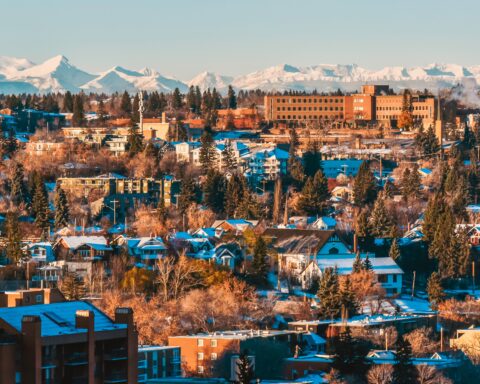The foreign-ownership and housing affordability debate is currently the most reported and talked about socio-political issue in the City of Vancouver.
Truthfully, for those of us who care immensely about this city’s future, it is not an easy conversation. Regardless of partisan politics or ethnic background or even financial wealth, few would disagree that some form of a solution is needed urgently to address the growing concern of working class Vancouver families and professionals.
Browsing through the foreign ownership studies and anecdotal stories over the past year, I cannot help but feel very conflicted on a personal level. I am a young lawyer in Vancouver, earning a decent salary. However, when I subtract my expenses and debts, I too could become someone who will be renting in Vancouver, living paycheck to paycheck with no guarantee of any future ownership prospects.
Yet, I am fortunate. I am painfully aware that many families with young children cannot even afford rent, let alone food or clothing.
The west side
My interpretation of the foreign ownership debate is influenced by my self-identification as a Chinese-Canadian born in Canada. I have lived at home much of my life. My home happens to be on the much-discussed west side of Vancouver.
My parents, both naturalized Canadian citizens, immigrated to Canada from China in the late 80’s, carrying with them non-anglicized names that they never changed. In fact, my legal name is itself non-anglicized (the Chinese name comes first). According to current ‘name-analysis’ study methods, my parents would be classified as foreign owners even though they have been Canadian citizens for over two decades.
According to current ‘name-analysis’ study methods, my parents would be classified as foreign owners even though they have been Canadian citizens for over two decades.
I can also anecdotally report that there are many families like mine all across the city: Asian-Canadian families that have been in this country long enough that the tag of “foreign” should not logically apply. Yet, I have also noticed a trend of more recent arrivals.
However, many of these individuals, too, are legally Canadian. They hold permanent resident cards; many of them have also obtained citizenship, and aside from the length of time spent here, they are as Canadian as you and I. This begs the question, what separates a foreign owner from a Canadian owner? Can we even tell the difference?
Media narrative
I suggest that the current media narrative is incomplete. My story of how we ended up on the west side, living in homes that are now valued at over a million dollars, does not square with the current brouhaha around “wealth and investment”.
As second-generation Canadians or Canadians who arrived in their early years, or, in some cases, in late high school, our families worked long hours, multiple jobs, and moved from basement to basement. My parents, like many other immigrant parents, sacrificed their own material well-being, rarely taking family vacations and working full-time jobs, to be able to afford a house in Vancouver.
Many of our parents successfully started businesses in Canada, often taking risks after periods of under-employment or under-recognition in the mainstream economy. They gave their businesses ethnic-sounding names to honour their immigrant roots or their intended client base. These businesses often focused on export-import, providing language-specific services, including a global trade element.
These businesses, along with immigration to Vancouver, flourished in the late 90’s and early 2000’s. Ironically, some of these businesses (restaurants, consultancies, and sole proprietorships) are the very ‘Canadian’ ones newspaper columns and some community commentators are targeting for carrying ethnic names.
“Astronaut families”
Another trend among these families is that several of them (my late father included) had a family member return to China to pursue economic opportunity. On paper, this may sound like an “astronaut family,” a term that has taken on a somewhat derogatory tone for the “over privileged” children and wives that the parent supposedly left behind.
However, for a majority of families that I know, economic opportunity, leadership positions and a salary more in keeping with what they deserved, were beyond reach, leading them to take the life-altering decision to leave Vancouver. Working abroad in global companies that respected their ability to understand both cultures, doubled and tripled their compensation and even more importantly, rewarded them with management positions.
My parents, like many other immigrant parents, sacrificed their own material well-being, rarely taking family vacations and working full-time jobs, to be able to afford a house in Vancouver.
Ironically, my generation (similar to my parents’ generation) is now facing similar challenges in the local job market. The Toronto Star recently reported on how having a “non-anglicized name” or “ethnic resume” has led to challenges obtaining employment.
It is no surprise that with these barriers many Canadian-born and -raised graduates and professionals are pursuing career opportunities overseas, earning higher incomes. Many of these individuals are returning to Vancouver when they are financially stable, buying condos and houses, partners and children in tow.
The problem then becomes, who are these so-called “foreign-owners”? In my opinion, it cannot be as simple as searching up non-anglicized names in a real estate registry. Any attempts to levy taxes or penalties must inevitably transcend race, ethnicity, and country of origin to be consistent with fundamental Canadian values and rights.
Will Tao is a Canadian Immigration Lawyer at Larlee Rosenberg, Barristers and Solicitors, in Vancouver, British Columbia. He is also a director at New Canadian Media.




